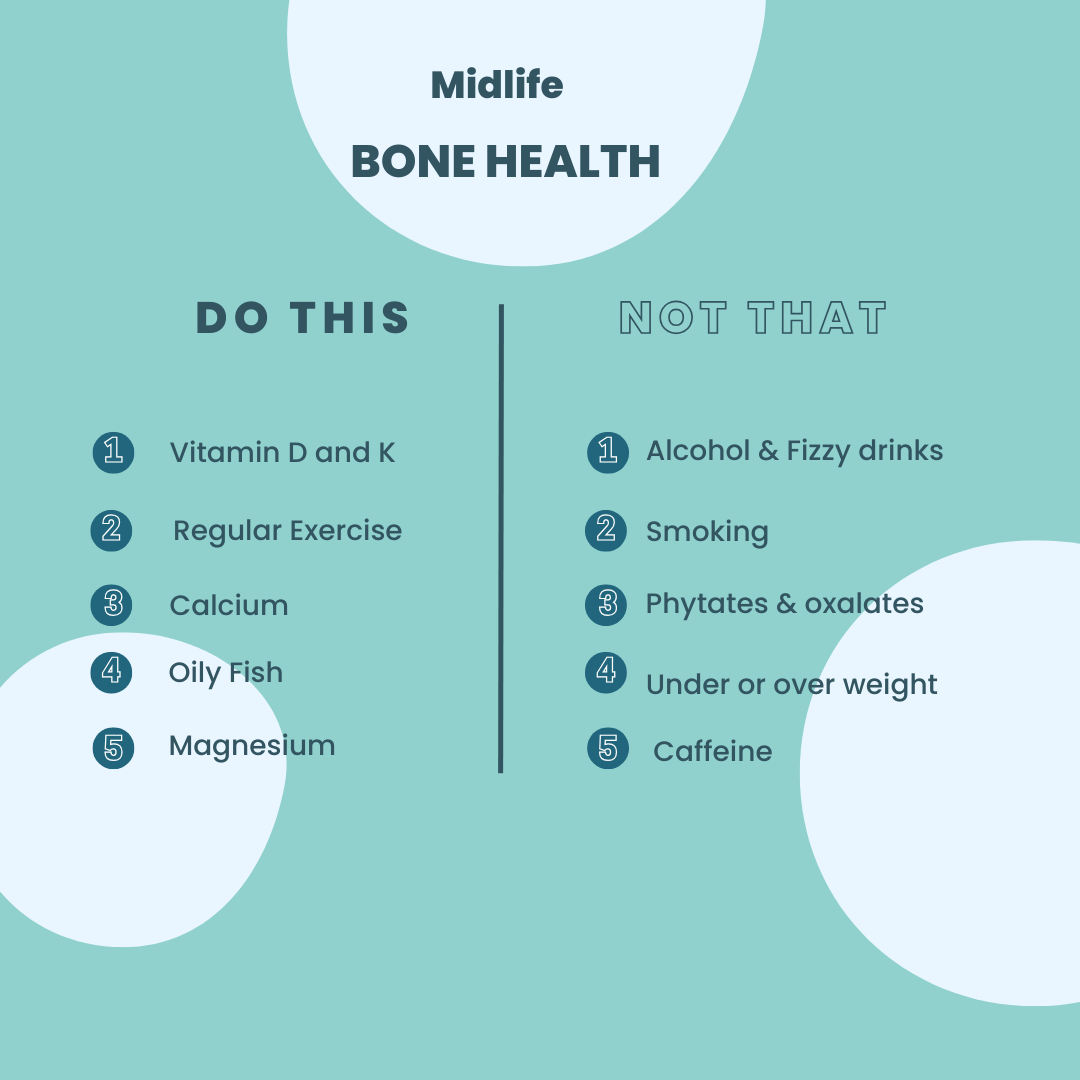Magnesium
Magnesium is one of many essential nutrients for the menopause, highly abundant in the body and responsible for over 300 different roles and many more processes. Certain essential nutrients like magnesium can prevent high blood pressure, depression and heart disease! (1) All are indicated in menopause. Magnesium is a vital menopause nutrient because it calms the nervous system and regulates the body’s response to stress and is crucial for energy production. A lack of magnesium can leave you tired, anxious, and less able to deal with stress. (2) All these areas can be affected during menopause so it’s important to ensure you have all the nutrients for menopause including magnesium.
As a result magnesium is crucial, but that’s not all, women are often lacking in nutrients for the menopause like magnesium for dietary reasons and because hormonal contraception deplete levels. There is lots of evidence for premenstrual syndrome prevention using magnesium and B6(3) It is also vital for lots of systems affected by menopause e.g brain, bones, insulin regulation and circulation and muscle tension. I’ll be covering more nutrients for the menopause in later blogs.
Sleep and Relaxation
It increases the brain chemical GABA, this neuro transmitter is the one that puts the breaks on brain activity helping us relax. It’d 2 fold effect also inhibits the excitatory brain chemicals like glutamate (4)
Brain Boosting
Magnesium acts as the gatekeeper for N-methyl-D-aspartate (NMDA) receptors, found on nerve cells that support healthy brain development, memory, and learning. Magnesium prevents weak signals triggering NMDA receptors that may stimulate the nervous system needlessly. Low magnesium may mean fewer NMDA receptors are blocked leading to more being stimulated more often. This kind of overstimulation can kill nerve cells and may cause brain damage. (5)
Heart Health
Magnesium helps your heart muscle cells relax by countering calcium, which stimulates contractions. If low your heart may be over stimulated. Additionally, our cellular energy enzymes rely on magnesium to make electrical impulses this is necessary for overall energy and for heart function. So, in the same way magnesium blocks calcium it can help muscles relax, helpful if if you suffer cramps or spasms.
Blood Sugar Control
Often those with type 2 diabetes have low magnesium levels, can’t use insulin efficiently leaving blood sugar high. But magnesium regulates insulin which moves sugar out of the blood and into the cells for storage and energy. (6)
Migraines
Studies show that low magnesium may cause migraines. And women are often prone to headache and migraine in menopause. Also some people with migraines have considerably lower magnesium levels than healthy adults. (7)
Depression
Many women suffer low mood and even depression at menopause and low Magnesium is linked to symptoms of depression. (8)One reason for this is that magnesium helps regulate your brain function and mood. Several studies have shown that supplementing with magnesium may reduce symptoms of depression. (9)
Skin Struggles
Low magnesium may result in lower fatty acids in the skin which reduces elasticity and moisture levels leading to dryness and wrinkles! Surprisingly, magnesium can also help to protect your skin from damage, as it supports cellular regeneration and repair. It is plays a key role the immune system helping reduce acne and breakouts, skin allergies and supporting collagen function.(10)
How to boost your magnesium
Unfortunately it seems not many of us meet the recommended daily intake (RDI) of 400mg, but you can up your intake with food sources. Ideally if you want to boost your magnesium see the list below
- Leafy green vegetables, such as spinach, kale, broccoli or watercress
- Wholegrain foods such as brown rice or wholemeal bread
- Nuts and seeds like pumpkin and flax almonds and cashews
- Wild caught salmon and mackerel,
- Vegan sources include back beans and tofu!
Take a Bath!
Something to try as an alternative is to take an Epsom Salts (magnesium sulphate) bath with 2-3 handfuls in the bath and soak for at least 20 minutes. The magnesium will absorb through the skin, relaxing the muscles and setting you up for a good night’s sleep.
Supplements
Therefore in this instance I recommend tailored professional nutritional guidance as we are all individual, and medications and other supplements can interact. So for example, magnesium can interact with common medications for high blood pressure, antibiotics or diuretics. Avoid taking magnesium with zinc as it may reduce absorption.
If you’d like a Health Reboot consultation which includes a nutrient review find out more
Sign up for my FREE calm Hot Flushes Recipes and Menu Plan
- Baaij JHF de, Hoenderop JGJ, Bindels RJM. Magnesium in Man: Implications for Health and Disease. https://doi.org/101152/physrev000122014 [Internet]. 2015 Jan 1 [cited 2021 Sep 1];95(1):1–46. Available from: https://journals.physiology.org/doi/abs/10.1152/physrev.00012.2014
- Magnesium in diet: MedlinePlus Medical Encyclopedia [Internet]. [cited 2021 Sep 1]. Available from: https://medlineplus.gov/ency/article/002423.htm
- Fathizadeh N, Ebrahimi E, Valiani M, Tavakoli N, Yar MH. Evaluating the effect of magnesium and magnesium plus vitamin B6 supplement on the severity of premenstrual syndrome. Iranian Journal of Nursing and Midwifery Research [Internet]. 2010 Dec [cited 2021 Sep 1];15(Suppl1):401. Available from: /pmc/articles/PMC3208934/
- Cuciureanu MD, Vink R. Magnesium and stress. Magnesium in the Central Nervous System [Internet]. 2011 Jan 1 [cited 2021 Sep 1];251–68. Available from: https://www.ncbi.nlm.nih.gov/books/NBK507250/
- Newcomer JW, Farber NB, Olney JW. NMDA receptor function, memory, and brain aging. Dialogues in Clinical Neuroscience [Internet]. 2000 Sep [cited 2021 Sep 1];2(3):219. Available from: /pmc/articles/PMC3181613/
- M B, LJ D. Magnesium and type 2 diabetes. World journal of diabetes [Internet]. 2015 [cited 2021 Sep 15];6(10):1152. Available from: https://pubmed.ncbi.nlm.nih.gov/26322160/
- Assarzadegan F, Asgarzadeh S, Hatamabadi HR, Shahrami A, Tabatabaey A, Asgarzadeh M. Serum concentration of magnesium as an independent risk factor in migraine attacks: A matched case-control study and review of the literature. International Clinical Psychopharmacology. 2016 Sep 1;31(5):287–92.
- EK T, B L. Magnesium intake and depression in adults. Journal of the American Board of Family Medicine : JABFM [Internet]. 2015 Mar 1 [cited 2021 Sep 15];28(2):249–56. Available from: https://pubmed.ncbi.nlm.nih.gov/25748766/
- GA E, KL E. Rapid recovery from major depression using magnesium treatment. Medical hypotheses [Internet]. 2006 [cited 2021 Sep 15];67(2):362–70. Available from: https://pubmed.ncbi.nlm.nih.gov/16542786/
- Magnesium | Linus Pauling Institute | Oregon State University [Internet]. [cited 2021 Sep 15]. Available from: https://lpi.oregonstate.edu/mic/minerals/magnesium







